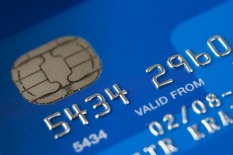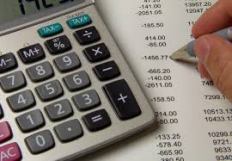 Many times trying to leave an abusive relationship is filled with crisis and emergency. Sometimes police are called, sometimes charges are laid, sometimes people are hurt. It can be stressful and overwhelming and trying to remember people’s names and phone numbers and what on earth you need to do next to make sure you and potentially your kids are not homeless is literally too much.
Many times trying to leave an abusive relationship is filled with crisis and emergency. Sometimes police are called, sometimes charges are laid, sometimes people are hurt. It can be stressful and overwhelming and trying to remember people’s names and phone numbers and what on earth you need to do next to make sure you and potentially your kids are not homeless is literally too much.
A particularly challenging area is finances. They can be easily overlooked in the quest to ensure physical safety and emotional safety but they are critical and the list of things to do can be long.
Below is a financial checklist that we have developed after realizing at numerous domestic assault calls that people should have this information as a hand out sheet to keep with them as their guide and reminder of things to take care of.
Financial Checklist
- Banking – Bank Card (s) * Bank Accounts/Joint Accounts * Credit Cards
- Change all ATM and debit card pin codes & online banking passwords
- Consider cancelling joint credit cards
- Consider closing joint bank accounts
- Open a bank account in your name only. Change your direct deposit information with your employer/OW/ODSP/ Canada Revenue Agency ( Child Tax Benefit, Trillium Benefit, GST/HST payments, CPP etc…)
- Open a post office box for mail and any financial information you may receive before/immediately after leaving an abusive situation
- Joint loans and guarantees – seek legal advice about where you stand
- Income – Employed * O/W * ODSP * Other Income
- Government Payments – Contact the Ministry of Community and Social Services to find out what payments and services you are entitled to
- Child Support Payments – Talk to your lawyer regarding child support payments that you are entitled to
- Spousal Maintenance – Talk to your lawyer to work out if your former partner should pay spousal support
- Contact the Canada Revenue Agency to change marital status (if leaving your partner). You may be entitled to more benefits ( Canada Child Tax Benefit, Trillium Benefit etc…)
- Financial Counselling – See a free financial counselor to help sort your debts
- Trouble With Debt – If you are finding it hard to keep up with your loan repayments let your credit provider know you are experiencing financial hardship
- Budget – work out your income and expenses. Try using an online budget planner.
- Housing – House Owner* Renting * Shelter
- Call your utility companies – including your wireless telephone services, internet/cable/heating/hydro etc. – to secure your private information with special pin codes and passwords.
- Utility Bills – If you are staying in the home, put all utility bills in your name only. If you have left the home, take your name off all utility bills. You may need legal advice if there are any bills owing
- Legal Protection – If your home is only in your ex’s name, talk to your lawyer about whether you need to protect your property with a caveat
- If you have a mortgage, let your lender know you have separated
- If you are renting and are remaining in the home, contact your landlord and change the lease so that only your name is on it. If you are leaving the home, take your name off the lease.
- Trouble With Debt – If you are finding it hard to keep up with your bills talk to the company and let them know you are experiencing financial hardship
This list is not meant to cover absolutely everything but hopefully it will be useful for anyone planning to leave an unsafe situation or has recently left one!
For more information, please go to Understanding Financial Abuse & Safety Planning or Tips for Economic Recovery after Leaving an Abusive Relationship
Categories: Assault, Dating Violence, Domestic Violence, Forced Marriages, Human Trafficking, Trauma, Victimization



Leave a comment